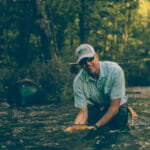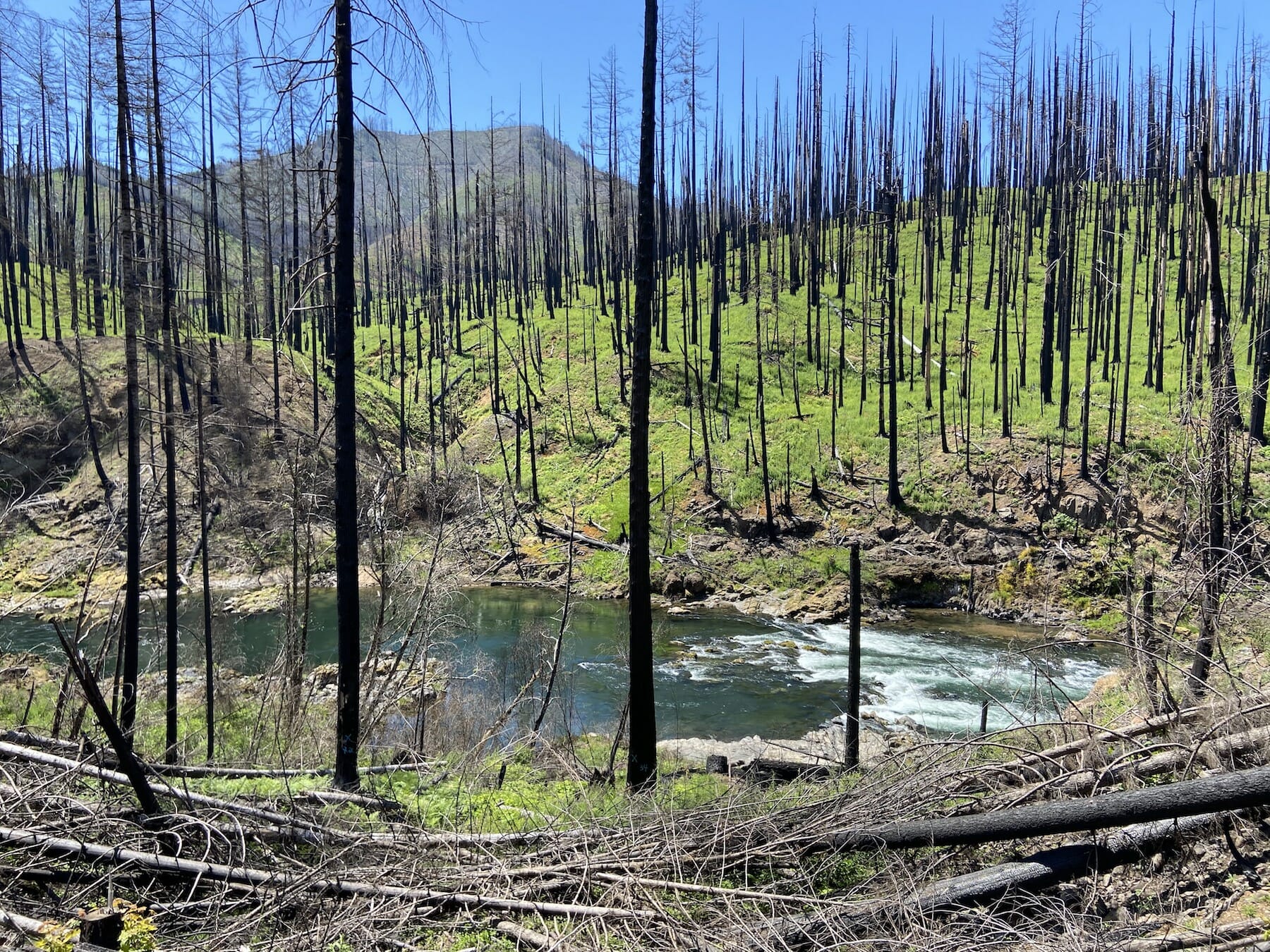We stopped first at Swiftwater Park.
My brother, Greg, and I always start there when we fish the North Umpqua searching for summer steelhead.
It’s not much of a park, really. Just some parking next to the river, along with his and her’s vault toilets.
The river is the attraction. This is the final upstream spot before reaching the North’s famous fly-only water. We can pitch indicator rigs here, and then switch to our swinging gear and hike upstream.
I get to do this typically only once a year, during visits home. So, I relish the moments of rigging up in that little parking area; of walking through the grove of massive Douglas firs between the parking lot and the river; and of reaching the high bank and taking that first look, scanning the river and hoping to spot the unmistakable forms of steelhead holding in the tailout in the early morning light.
But this time it was different.
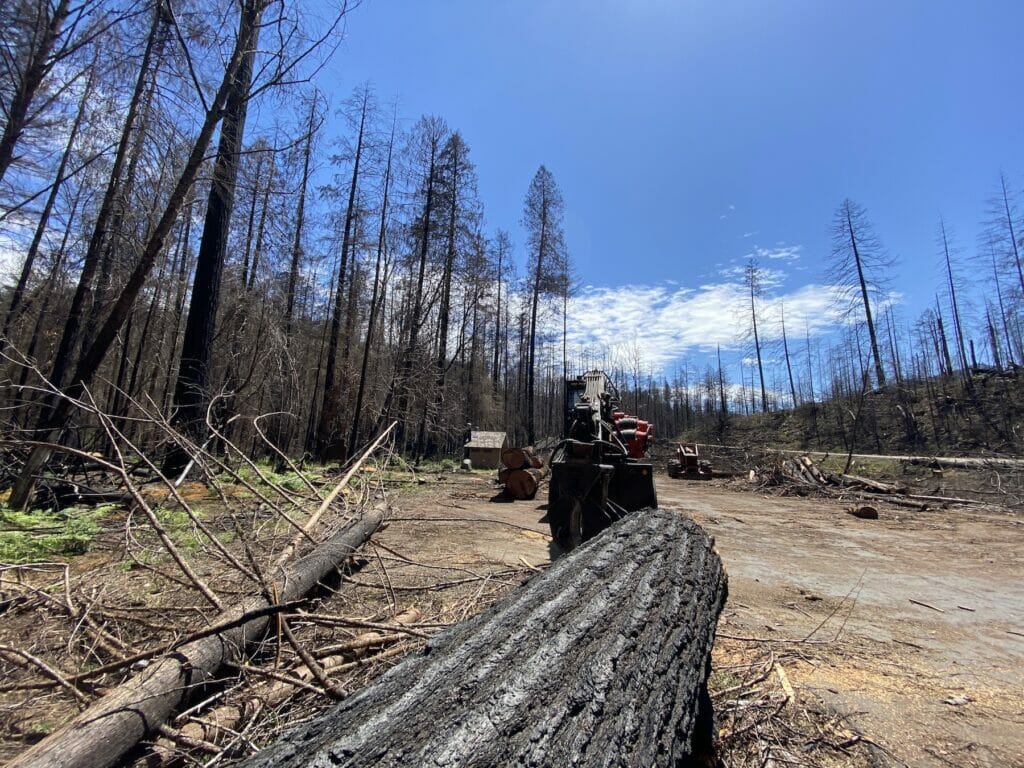
The parking lot was filled not with anglers’ vehicles, but with massive Douglas fir logs, their bark scorched black. The trees that still stood were all burned, sooty spires that tell the story of the devastating wildfire that hit the area in the summer of 2020.
“Did I tell you or what?” Greg said, shaking his head.
Before my visit he had actually sent me a video from his first trip up to the area, the hillsides rising dark and ravaged as his truck made its way up the winding North Umpqua highway. So, I expected bad.
I just didn’t expect this bad.
What was known as the Archie Creek Fire burned more than 130,000 acres outside Roseburg.
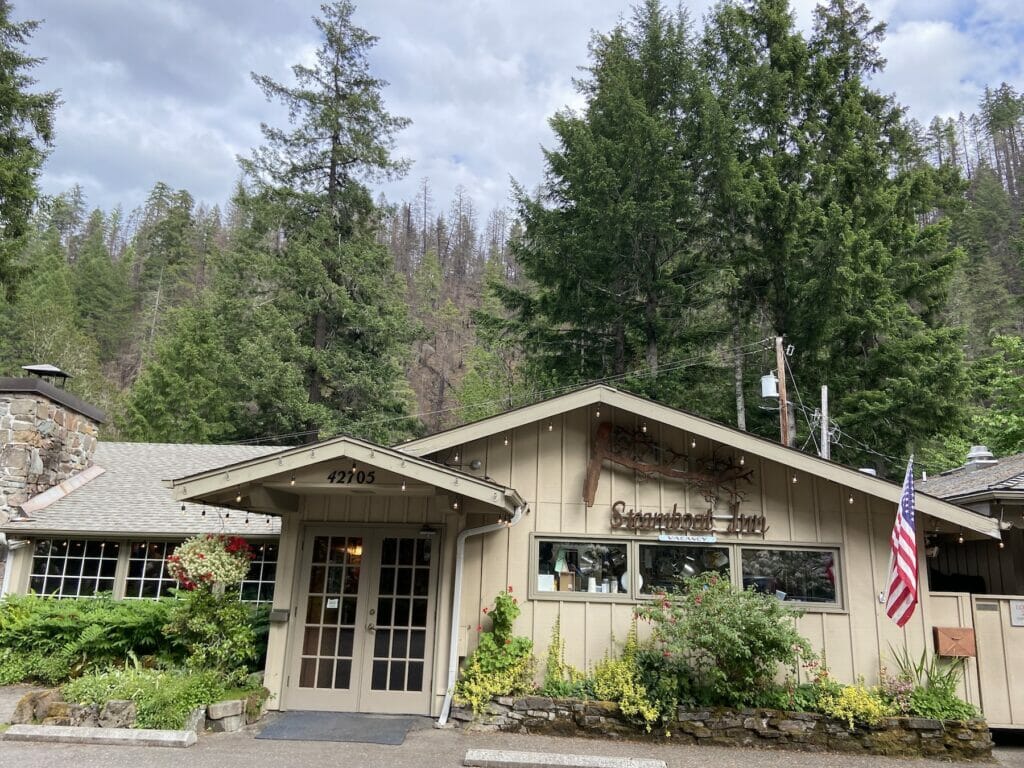
Iconic businesses including the Idylwyld Grocery and Steamboat Inn had close calls, but the fire destroyed 109 houses, including the longtime home of North Umpqua steelhead icon Frank Moore and his wife, Jeanne.
Miraculously, the fire resulted in just one fatality.
Here in the East we are not immune from wildfires. But we face nothing like the constant annual threats seen in the West, a region facing gripping years’-long drought and where fire seasons are growing longer and more severe.
Even those who may not be at high risk from fires themselves spend their summers under clouds of lung-searing, eye-burning smoke. But to really appreciate the devastation, it helps to actually be there on site.
We left the water at Swiftwater for the folks plunking eggs for spring Chinook, jumping in the truck and heading upstream.
We drove through the burned forest for miles.
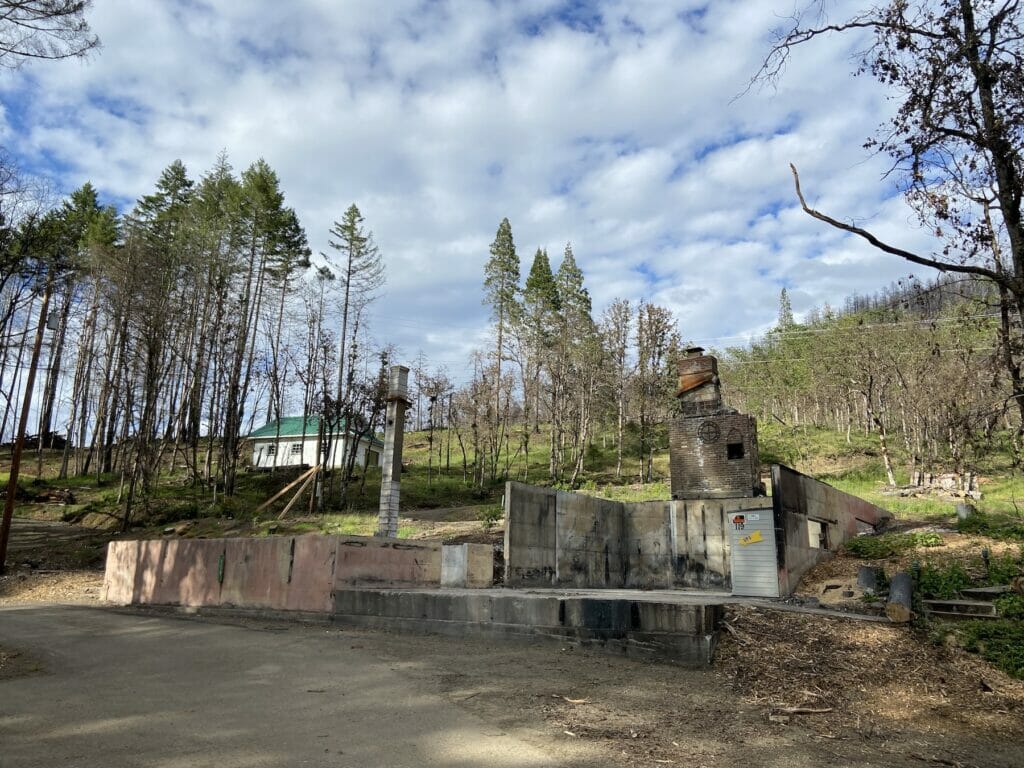
We saw home foundations scraped clean. Huge, bare hills cleared of salvageable timber. Highway guardrails warped and bent by the extreme heat.
There are signs of rejuvenation. Some hillsides were showing the green of newly emerging plants. But many hillsides, even in the normally lush month of May, remained brown.
That is not a surprise given that experts estimate that about a third of the burned area was considered “high severity” — fire so hot that it impacts plant and tree root systems. Those areas can eventually recover, but it will be years.
Finally, far up the valley, we left the burned hillsides behind. We pulled over and, knowing we were too early for summer steelhead, rigged up for trout. Caddisflies fluttered in and around the shoreline bushes. A few giant stoneflies buzzed overhead.
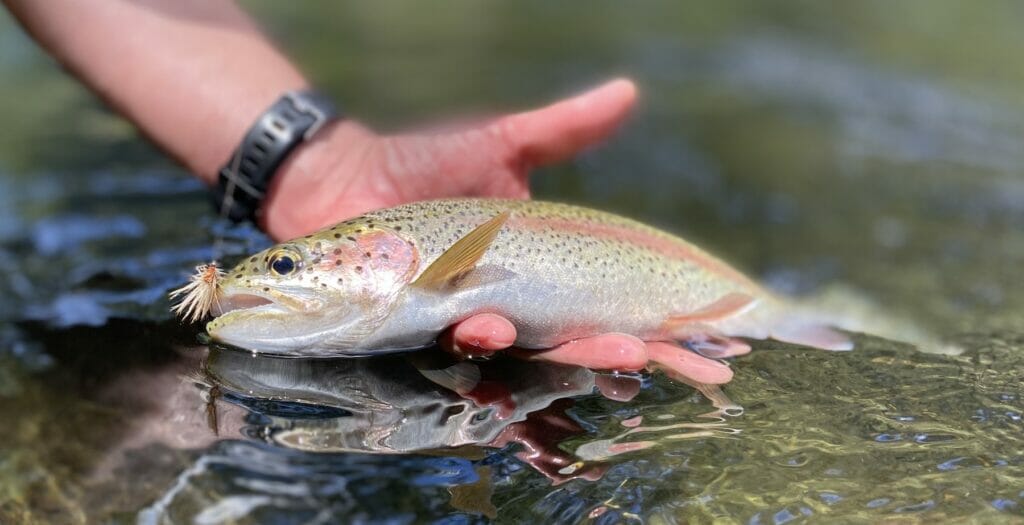
Greg was skating a big Stimulator through a riffle when a trout rose and inhaled the fly. As I watched him fight the spunky 15-inch rainbow I thought about the resilience of nature, and I tried to stay optimistic about the future of this river, one of our favorites.
How will the Archie fire, and the inevitable fires of the future, impact North Umpqua’s fish, both its residents and the annual visitors from the Pacific––those beloved anadromous steelhead and salmon that already face a host of other challenges?
Nature is resilient. We know this. But is there a time when we reach an inflection point beyond which full recovery will not be attainable?
As Greg landed and gently released the trout I felt a twinge of optimism. I hope that emotion is even more profound next summer when I stand thigh-deep in the cool, azure waters of the North Umpqua in the shadow of hillsides that are green once again.
Editor’s note: The Oregon Department of Fish and Wildlife has closed the North Umpqua River to angling from Aug. 10 to Nov. 30 because of a combination of low numbers of returning steelhead and much-warmer-than-typical water temperatures.
Mark Taylor is Trout Unlimited’s eastern communications director. Now living in Virginia, he grew up in Douglas County, Oregon, about an hour from the North Umpqua River.


